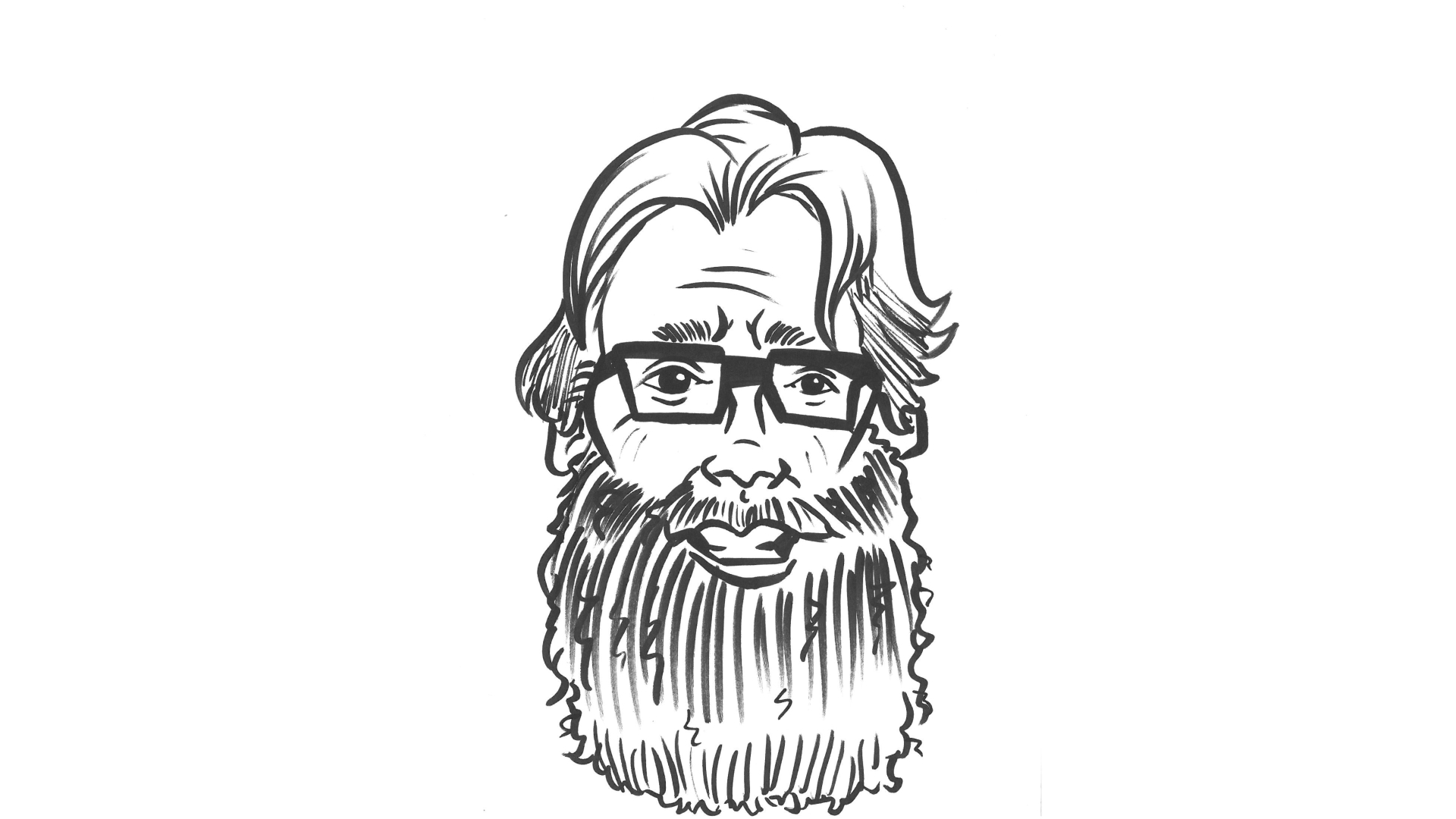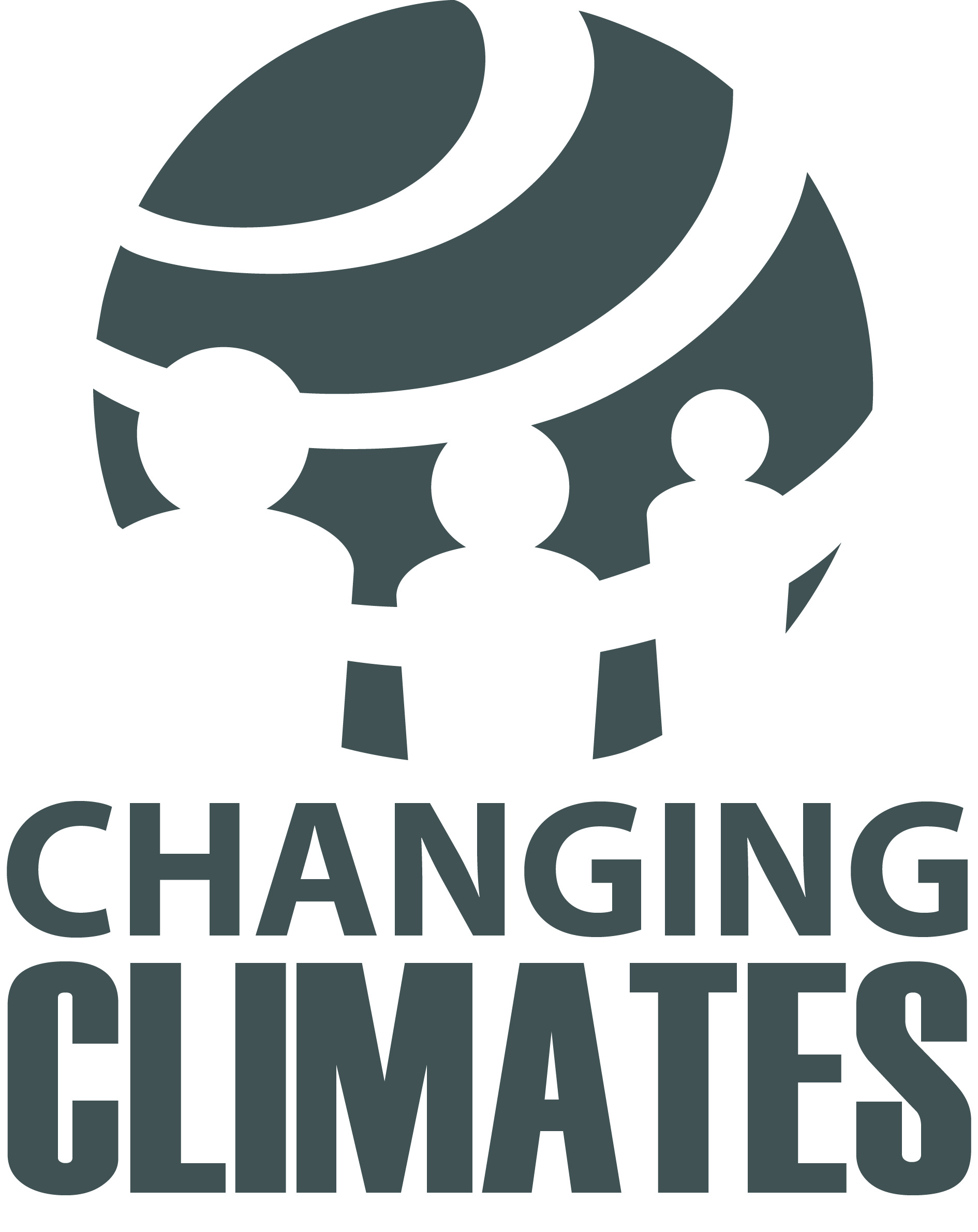Physics III |
PHYS 207 |
|
|
 Gabe Spalding |
Physics III |
PHYS 207 |
|
|
 Gabe Spalding |
Recognize that most opportunity is beyond the range of common experience. In other words, you don't yet know MOST of the things that the world has to offer you! So, while celebrating your current interests, in this course we also celebrate continued exploration of the world of ideas, and the many interconnections you will discover: towards this end, you will regularly peruse sites highlighting cutting-edge projects, with the aim of finding (4) articles per week that describe "cool projects." You will use Zotero bibliographic software to record (with the simple click of a button) these into your own personal "Articles of Interest Log." It will then be super easy to annotate your bibliography and, periodically, to review your list and to share some of the coolest entries with one of our Facebook Groups:
- The goal is to systematically (and iteratively) build up conversation in new areas that appeal to you. Let's see where this takes us!
This course will expose you to possible new interests via ongoing exploration of cutting-edge projects and, critically, we will enter into (both oral and written) conversation about those projects that you identify as "cool." Connect these to what's already going on locally, whether via student clubs or on-campus research groups and fabrication facilities, or our Mark Evans Observatory. There are a number of nearby facilities of relevance, such as FermiLab and CU Aerospace, or Zentech, Inc. (formerly CAMtek), which is focused on advanced electronics manufacture and assembly. There are many advances taking place at SCADAware Robotics, G3 Machining, the Bridgestone tire manufacturing facility, Caterpillar, the State Farm Vehicle Research Facility, the State Farm Building Research Unit, and the local branch of the Army Corps of Engineers. Wolfram is outstanding at innovating computation. Driver assistance technologies are just one focus of AutonomouStuff, and we also have Rivian Automotive, the electric vehicle manufacturer and advanced battery developer. The Ameren Microgrid facility integrates (intermittent) renewable energy sources including wind and solar with backup strategies such as natural gas turbines and battery-based storage facilities. Such research can be traced back to the Department of Energy's Argonne National Lab, which is a critical national asset, moving forward. The Ecology Action Center aims at community involvement, while our shared IWU GreeNetwork is an action-oriented open group for members of our community who are interested in Environmental issues. Some of our students interested in Architectural/Structural/Civil Engineering have been particularly involved in our on-campus projects. The next big one will have to do with co-generation of energy, through our on-campus GreeNetwork. We also expect field trips will play an important role in this process: e.g., one to Caterpillar and another to the Department of Energy's Argonne National Lab; next term, we expect the follow-up course (PHYS 299) will integrate interactions at FermiLab and at AutonomouStuff. Pay close attention to the explorers and makers in your community!
So that you are well-prepared to act upon the interests you identify, this course introduces central principles underlying the modern frameworks of relativity, quantum mechanics, thermodynamics and many-body physics. It is also a required course for the Concentration in Optics & Photonics, for the Concentration in AstroPhysics, or for our Concentration in Quantum Science & Technology (QST). In earlier physics coursework, you learned about Mechanics, the science of motion, which remains important, but behaviors at the microscopic scale are qualitatively different from those familiar to us on the macroscopic scale. As just one example, thermal agitation leads to a world that, at the scale of the organelles within biological cells, is much more violent than anything our intuition (based on the macroscopic world) might lead us to appreciate, and this violence increases dramatically as we move to the smaller length scales associated with biomolecules, playing an essential role in how such things work (that is very much under-appreciated by those without training in Physics). We should also convince ourselves that relativistic corrections are required for understanding any kind of high-speed signaling, measurement, communication or imaging, as well as the (surprising, but cool) nature of time and space. Similarly, we should demonstrate that one cannot understand Semiconductor Physics without an introduction to Quantum Mechanics and Many-Body Physics. A basic introduction to semiconductor physics and devices is also a focus of the lab portion of the course.
There remains a great advantage in working our way through an analytical textbook, in order to build a solid foundation for the most abstract scientific concepts (energy, momentum, how information may be held or transmitted, created or "lost"). Our analytical text includes: Relativity; the experimental basis of quantum mechanics; wave-particle duality; Schrödinger's equation and solutions in one-dimension; time dependence of quantum states; two- and three- dimensional quantum, angular momentum; solving Schrödinger's equation for one-electron atoms (the periodic table). We will discuss basic ideas of atomic and nuclear structure. We will also lay the foundations for further study of Many-Body/Statistical Physics (e.g., by discussing the origins of the Pauli Exclusion Principle).
Note that it is incorrect to speak of the liberal arts & sciences: Physics has been a part of the liberal arts since Plato first popularized that particular educational philosophy. Moreover, it is simply part of being human to ask questions about the physical world, so shouldn't we expect every well-educated person to grapple with the marvels of Einstein's theories of spacetime, and with the wave nature of matter (first demonstrated by Bloomington's native Nobel Laureate, Clint Davisson), and with Information Theory and the revelations that come from quantum mechanics; here, at the dawn of the age of nanotechnology and faced with energy and environmental issues on the global scale, shouldn't we be delving into macro-micro connections, and modern approaches to modeling complex physical systems?
In summary, this course offers an introduction to the formalisms associated with Relativity and basic Quantum theory, including the consequences of indistinguishability, which lead directly to the Pauli Exclusion Principle, Fermi-Dirac statistics, Bose Einstein statistics, and the many-body physics underlying both Thermodynamics and Materials Physics. Includes Laboratory and Computer exercises.
Skill Development
Part of the process of learning to do physics involves skill development; for this reason, we will have a series of classes devoted a few of the most fundamental skills:
We emphasize use of the writing process as the key to developing, organizing, and synthesizing your work. Your professional advancement will depend critically upon your technical writing skills.
Add to your resume:
Habits of Mind & Work:
- Clearly, maintaining a lab notebook involves a kind of writing that is closely tied to the scientific method (writing your way towards understanding), but that is not the only kind of writing involved in this course.
- After you have assembled a significant annotated bibliography (your "Articles of Interest Log"), you will engage in a series of exercises aimed at fleshing out your interests (addressing what it is about particular projects that causes them to be of interest to you, and to the broader world), at the same time refining your oral and written communication skills. The kinds of writing involved here will lead towards letters that you will send to top researchers working on the particular cutting-edge projects you care about most.
- It is only by looking at the written work of professionals that you begin to internalize the conventions of writing within such areas of work. For favorite projects from your Articles of Interest Log, it will be important to examine (with my assistance) the peer-reviewed literature, and not just a popularization on the topic.
- Some of our meetings will be devoted to discussion of various assignments or readings. At this time students may be asked to present analytical methods at the board, or to provide qualitative/conceptual interpretations, or to try to provide context as to the importance / role of some particular topic or project.
Course Organization:
- Each week, there will be 2.5 hours of time where we collectively meet in the lab. These meetings are supplemented by three hours of collective meetings outside of lab.
- Written assignments, other than the lab notebooks, must be turned at the start of class on the day due.
- Matters of Honor - The instructor values our student honor code for the integrity it fosters and the pedagogical flexibility it affords. The important guiding principle of academic honesty is that you must never represent the work of others as your own. Just copying someone else's work is clearly a representation of another's work as your own, and is a violation of the community. The following guidelines should govern your behavior in the course; please request clarification if you find yourself in any doubtful situations.
- In lab, we require argumentative writing (and guided revision), in a lab notebook, as a means of promoting habits of mind and work that will serve you well in future work, both on campus and beyond. As you plan/review your lab notebook, keep in mind the following questions (which I will also ask, as I grade them, Saturday mornings, at 10:30 am):

You will grapple with readings and exercises (including lab exercises, pen and paper exercises, and computer exercises) outside of our collective meeting periods. To support you during those times, we remain available to one another via our online course discussion page
| ** Class Discussion Page on Piazza ** |
Highlighting Energy 
|
| Syllabus | Empowering STEM-based solutions to Environmental issues |
| Daily Schedule | How this course fits into your plan for world domination |